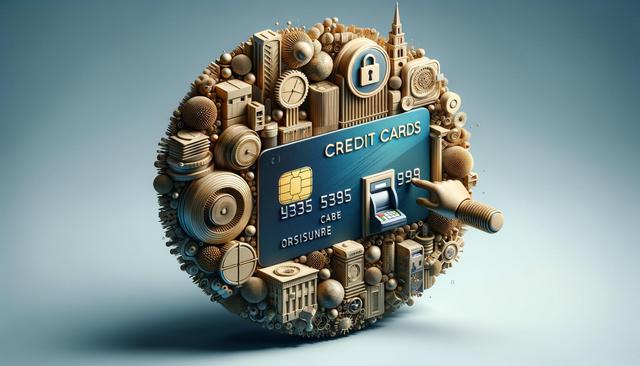How Credit Cards Work: The Basics You Should Know
Understanding how a credit card functions is the first step to using it responsibly. When you apply for a credit card, you’re essentially gaining access to a line of credit from a financial institution. You can borrow against this line up to a certain limit and are required to pay back at least the minimum amount each month. However, interest charges apply to any unpaid balances, which can quickly accumulate if not managed carefully.
There are different types of cards tailored for various needs, such as a student credit card for those just starting their credit journey, or a secured credit card for individuals looking to rebuild their credit history. Each card comes with its own terms, fees, and interest rates, making it essential to read the fine print before committing.
Be wary of flashy marketing that encourages you to credit card apply without fully understanding the responsibilities. Often, people are lured by rewards or low introductory rates without realizing how quickly interest can add up after the promotional period ends.
The Hidden Costs of Credit Card Use
Many people fall into the trap of thinking they’re managing their credit cards well, only to be caught off guard by hidden fees and charges. These often include:
- Annual fees
- Late payment penalties
- Foreign transaction fees
- Cash advance charges
Even balance transfer credit card offers may include transfer fees or high interest rates after the initial low-interest period ends. While these cards can be helpful in consolidating debt, they require careful planning and timely payments to avoid new financial burdens.
Some banks also structure payment allocation in a way that favors their profits. For instance, if your card has different interest rates for purchases and balance transfers, your payments may go toward the lower-interest balance first. This keeps the higher-interest balance generating more income for the issuer.
Credit Card Pre-Approval: What It Really Means
Receiving a credit card pre approval offer in the mail or online can feel like a vote of confidence in your financial status. However, pre-approval doesn’t guarantee final approval. It simply means you meet some initial criteria based on a soft credit check, but a full application will still involve a hard inquiry and thorough review.
Pre-approved offers can be a useful way to compare options, especially when looking for the most suitable card, such as the top-rated balance transfer credit card or a highly rated student credit card. But don’t let pre-approval tempt you into applying for too many cards at once, which can negatively impact your credit score.
Always research the card’s features, fees, and reviews, and consider your financial goals before accepting any credit card pre approval invitation.
Smart Strategies to Avoid Credit Card Debt
Avoiding credit card debt requires discipline and planning. Here are some effective strategies to help you stay financially healthy:
- Only charge what you can afford to pay off in full each month
- Set up automatic payments to avoid missing due dates
- Regularly review your statements for errors or unauthorized charges
- Use a balance transfer credit card strategically to manage existing debt
Additionally, consider starting with a secured credit card if you’re new to credit or rebuilding. These require a cash deposit that acts as your credit limit, helping you stay within your means while building a positive payment history.
Budgeting tools and mobile alerts can also help you track spending and avoid surprises. By making credit card use part of a broader financial plan, you reduce the risk of falling into revolving debt.
Choosing the Right Card for Your Needs
With so many options available, selecting among the best credit cards can feel overwhelming. Each card serves a different purpose, and choosing the right one depends on your financial habits and objectives. For example:
- A student credit card may offer lower limits and simple rewards to encourage responsible use
- A secured credit card is ideal for those with limited or damaged credit history
- A balance transfer credit card is useful for consolidating and paying off high-interest debt
Before you credit card apply, take time to compare features such as interest rates, reward structures, annual fees, and customer service reputation. Look for cards that align with your lifestyle and financial goals rather than those with flashy perks that may not be relevant to you.
Using credit cards wisely starts with understanding your own spending patterns and choosing a product that supports—not undermines—your financial stability.
Conclusion: Empower Yourself with Knowledge and Discipline
Credit cards can be valuable financial tools when used with care and foresight. By educating yourself on the different types of cards—whether it’s a secured credit card, a student credit card, or a balance transfer credit card—you can make informed choices that support your financial well-being. Avoid the common traps by reading the fine print, monitoring your spending, and paying your bills on time.
Remember that while credit card pre approval may seem like an easy invitation, it should not replace deliberate decision-making. Take control of your financial path by choosing the right cards and using them responsibly. With the right approach, you can enjoy the benefits of credit without falling into the debt traps banks would rather you overlook.



Leave a Reply